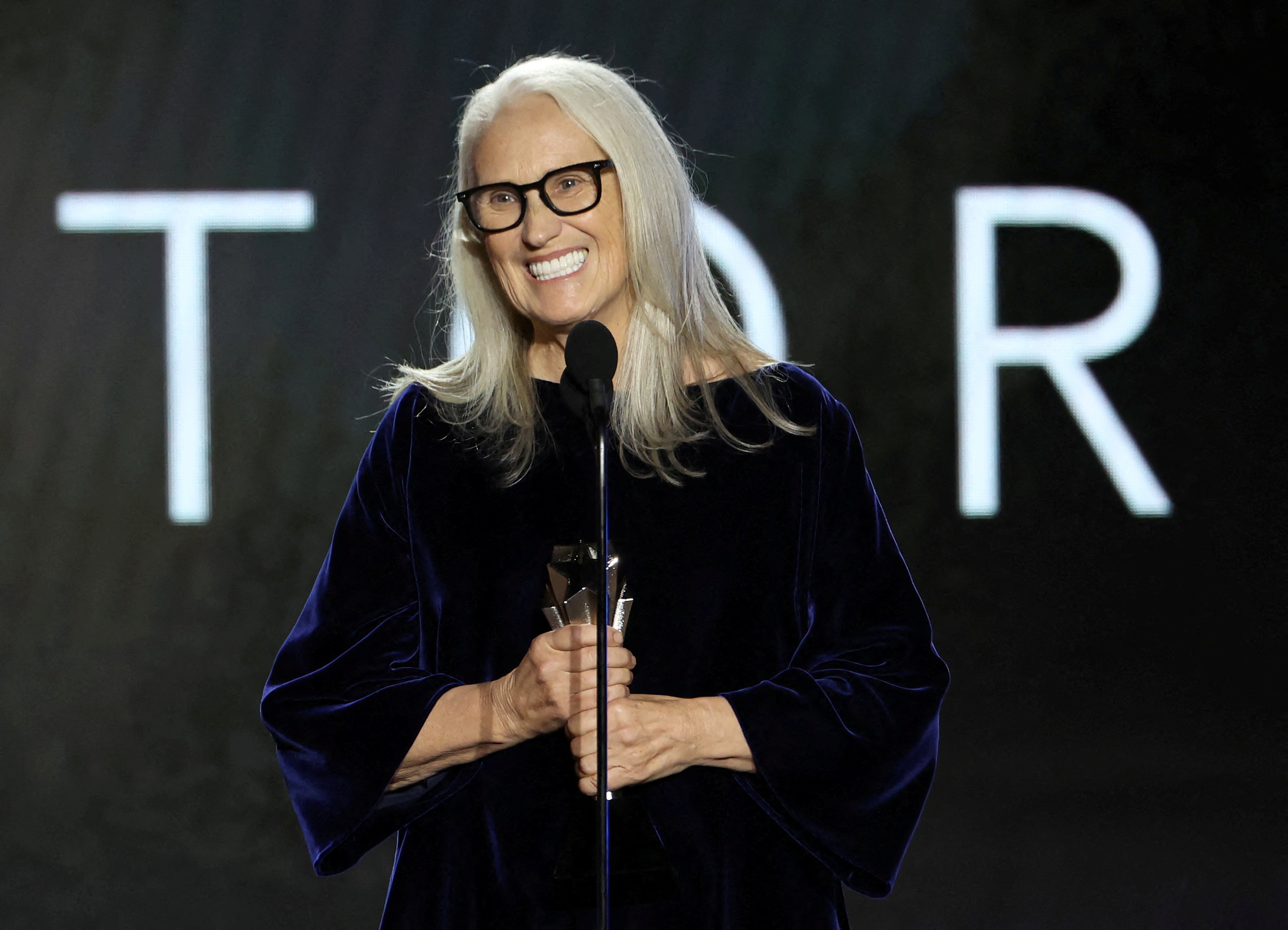Jane Campion’s quip about the Williams sisters is peak white feminism
I could fill up pages with examples of the racism and misogyny that the Williams sisters have faced since the start of their careers


A woman wins the Critics’ Choice Award for best director. Amongst a field dominated by men, this is a huge achievement.
In 2019, just 10.6 per cent of film directors in Hollywood were women, marking a huge jump from the 4.5 per cent reported in the previous year. In the US, women comprised just 8 per cent of directors working on the top 250 US domestic grossing films in 2018. And so, for Jane Campion to win this award from five other directors, all of whom were men, should have been a huge milestone for women.
But then, Campion stands up and says this in her award speech: “And Serena and Venus, you are such marvels. However, you do not play against the guys, like I have to.” And, a moment that should, and could have been celebrated by all women, irrespective of their race or class, became an example of what sounds like peak white feminism.
White feminism is a term that makes some women very defensive. But what it tells us is that even as we consider women to be a monolith group, with all of us striving for equality and for our rights in a patriarchal society, these struggles are not equally distributed. White feminism is a more palatable form of feminism, where it does not have to deal with the ugly side effects of racism.
Rachel Cargle calls it “white supremacy in heels”. It does not address the systems and structures that oppress women, but instructs women on how to advance despite them. And so, by its very nature, it ignores the systemic barriers that some women face.
While we are all women, we all have different identities that intersect with this. Our racial identity, our class, our disabilities (or lack of), our sexuality, and so on, all intersect so that some of us are closer to what society considers a norm. Some of us fit in more than others, while some of us are more marginalised, and will always be othered. And those who are more marginalised will always face more barriers when they try to enter, and then progress in, a field where they are in the minority.
Even when we consider women’s rights, gender is often conflated with race, and hence there is priority given to white, middle-class women. We know Black women are four times more likely to die during maternity and childbirth. We know that even as there are efforts in UK academia to appoint more women professors, and about 23.9 per cent of professors are white women in 2019, only 2.1 per cent are Black and Asian minority ethnic women.
I could fill up pages with examples of the racism and misogyny that the Williams sisters have faced since the start of their careers, and while we see their strength and resilience, we do not see the toll this can take on a person’s physical and mental health.
A few hours after this incident, as social media exploded with backlash, a quick, patchy apology was put forward, in which Campion is quoted as saying: “I do love Serena and Venus.” This isn’t an issue of whether she loves them or not, or what her intent was. This isn’t about whether Serena laughed when Campion said those words, or whether Venus danced with her in the after-awards ceremony.
Women of colour very often have to hide their discomfort during such situations. They have to pretend that such microaggressions have not occurred or they run the risk of being perceived as difficult, women who “cannot take a joke” or worse, being called “hysterical”. In doing so very publicly, and in a self-deprecating manner with a laugh, Campion makes it almost impossible for someone to take offence to her comments. And so it leaves Serena and Venus no choice but to become collusive in her white feminism.
This is the nature of such microaggressions, such seemingly minor but loaded racialised comments that can evoke doubt in a person’s mind as to the intent of the speaker. Did she really mean what I think she meant? I am sure this wasn’t her intent. Should I laugh at this because everyone else is? And while there was no doubt on this occasion that this comment came from a place of high privilege, where Campion had no idea of the barriers Black women face even when they don’t seem to be directly playing against men, such situations occur regularly in workplaces. And the focus remains on the intent of the person – of course they didn’t mean it like that – and never on the impact it has on the person who encounters such comments.
To keep up to speed with all the latest opinions and comment, sign up to our free weekly Voices Dispatches newsletter by clicking here
Campion also calls her comments “thoughtless” as if they come from a place without thought and therefore, she cannot be held responsible for them. So many of our words and actions stem from our implicit unconscious biases, the templates that we carry around in our brain that are reflective of our privileges. Those who are in the majority group hold more biases against those who are in the minority because of structural hierarchies.
These comments are not “thoughtless” – they reflect how Campion sees the Williams sisters as “other” and not part of her in-group, even if this is not conscious. And this is why we all have to regularly and consistently reflect on the stereotypes that we carry, before we activate them in our words and actions.
I don’t believe that Campion’s apology sounds as if she has reflected on her words, or the way she is more privileged than the Williams sisters, or how her white racial identity and her background of parents who were theatre directors and actors gave her not only opportunities and networks, but also a self-assurance of her place in the world that only comes from being in the majority, and the norm.
It reminds me of my own experience a few months ago, where another woman author explained to me how my book had achieved “success” because she had recommended it on her social media, and of the support she had offered me via her “blurb”, that things had come easy to me, and that I ought to be grateful for this. She was a white woman who came from a family with a long line of networks and connections in publishing, while I am a brown woman who came to this country with one suitcase and had made my way through the labyrinth of publishing with no networks. She was completely blind to her own privileges – and so it carries on.
Women of colour are made to feel grateful for the spaces that they are allowed in, for the space they are afforded. This also makes it impossible for them to complain, to raise issues when clearly they should be able to do so.
As Audre Lorde said: “What woman here is so enamoured of her own oppression that she cannot see her heel print upon another woman’s face?" And, we all have to reflect on how oppression is not a monolith but works along a spectrum of privilege and bias. We all carry some form of privilege based on one or more of our multiple identities, and it takes some self-reflection and discomfort to sit with this, and to acknowledge our privileges.
Dr Pragya Agarwal is a behaviour and data scientist and visiting professor of social inequities and injustice at Loughborough University
Join our commenting forum
Join thought-provoking conversations, follow other Independent readers and see their replies
Comments
Bookmark popover
Removed from bookmarks